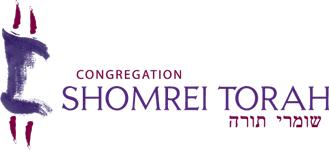By Rabbi George Gittleman | Santa Rosa Press Democrat
“My heart is in the east, while I am on the edge of the west” wrote the famous medieval poet, rabbi and philosopher, Yehudah Halevi. His words, his longing, his life, reflect the ancient and profound connection between the Jewish people and the land of Israel. Israeli independence? That was beyond Yehuda Halevi’s wildest dreams! All he hoped for was “to see the ruined shrine” (the remains of the Temple in Jerusalem), to quench the longing of his heart which, though comfortable in Spain, could only feel at home in The Promised Land.
Jews have lived continuously in Israel for 3,200 years, but since the Roman conquest of Judea in 70 A.C.E., sovereignty was lost until Israel’s rebirth in 1948. Yehudah Halevi did not realize his dream - he died en route – nor did the Jewish people for another eight centuries. But amazingly, the dream lived on; we pray facing east, towards Jerusalem, and, in our prayers, recited three times daily, there are regular references to Israel. In addition, our holydays are infused with a connection to Israel as, for example, Passover, when we commemorate our liberation from ancient, Egyptian bondage. At the end of the Seder – the celebratory meal – we say, “Next Year in Jerusalem”. We’ve been saying that for almost 2,000 years. If we could not all live there physically, we would keep the promise alive spiritually.
In 1948, that 2,000 year old dream became a reality; a home for the Jewish people in their ancestral land. Having been victims to history – the world was still coming to grips with the Nazi atrocities - now the Jewish people were re-entering history and that re-entry was painful, to say the least. The Jewish nation builders brought with them first world industry and agriculture as well the backbone and determination to “make the desert bloom”. Because of this, the economy grew as did the Arab & Jewish population. Conflict was inevitable and, in spite of many attempts by the Jewish pioneers to broker peaceful coexistence with their Arab neighbors, as well as the U.N.’s offer of partition, the Arabs (they were not called Palestinians then) chose the path of war, and they lost. For the Israeli’s, it was the War of Independence. For what would later become the Palestinians, it was the Naquba, the catastrophe; both sides suffered, much blood was shed, but when the hostilities subsided, the nascent state of Israel was born, and approximately 800,000 Palestinians had become refugees of the war.
Since 1948, Israel has managed to build, in spite of nearly 60 years of hostility with its neighbors, a vibrant, multiethnic, culturally diverse, economically robust, democratic country, while at the same time absorbing Jewish refugees from all over the world, including close to a million Jews who, after 1948, were expelled from the surrounding Arab countries.
Israel is far from perfect. The ongoing conflict with the Palestinians - the road blocks, check points and security barriers that make life so miserable for the Palestinians - also threatens to erode the soul of the Israelis that police them. Almost daily rocket attacks from Gaza, the constant threat of terror and the possibility of nuclear annihilation from Iran, place a heavy burden on the Israeli psyche. Yet, in spite of all these challenges, Israel manages to be a first world oasis in a third world desert, a democracy among dictatorships, and an exporter of technology and medical innovations rather than terror. The hope and vision of the Jewish people since the days of the Prophets, that Israel would live in peace with its neighbors to share the full possibilities and potential of their human and natural resources for the benefit of all humanity, seems far from Israel’s reality today. Nevertheless, at 60, mere adolescence for a nation, Israel has much to be proud of and to celebrate.
